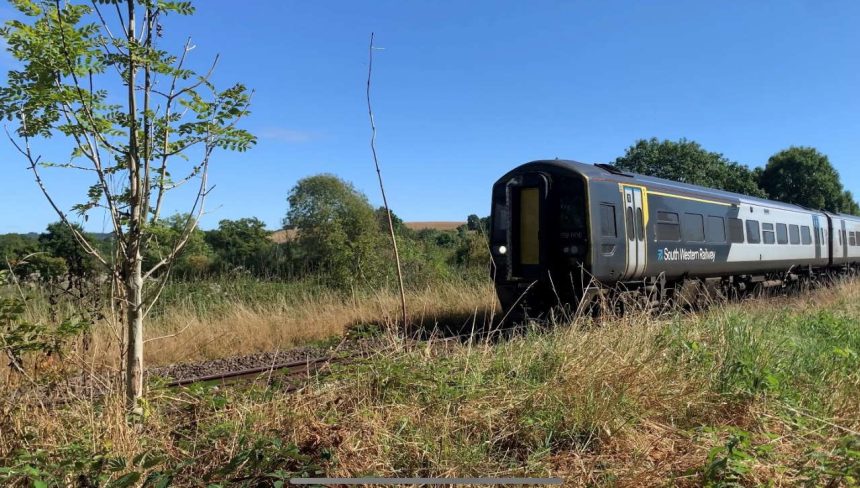A 4-mile long speed restriction has been imposed on the West of England main line west of Salisbury after the driest July since 1936, and the hottest temperatures ever recorded have had a great impact on the safe running of the railway.
Badly affected are sections between Gillingham and Tisbury in Dorset and Wiltshire. These were laid on clay-based soil, which has dried out so badly that they have shrunk, meaning that the tracks on top are uneven and too dangerous for trains to run at full speed.
All this has resulted in this section of line having a speed limit imposed, which is likely to remain in place until October, as repairs cannot be carried out until the soil has regained some of its moisture content. This stretch of line is a single track, which means that trains cannot pass each other and that they are taking twice the normal time to run between Gillingham and Tisbury. A revised timetable is currently being finalised and will be published soon.
Network Rail's Head of Track Engineering for Southern Region, Colum Cavanagh, said: “We call this problem Soil Moisture Deficit and although we encounter issues with it most summers, this year has been absolutely unprecedented.
“We came into the hot season with our track in the best condition it's ever been in, and yet now – late August – the soils around Gillingham have dried so badly the track is only able to take trains running at 40mph, down from 80mph.
“Normally we would take a piece of kit called a tamper in and sort the track out, a bit like shaking a duvet and getting it flat again. This year the problem is so bad that the soil is still shrinking and it's going to be some weeks until it has stabilised enough for us to do the work to bring line speeds back up to normal.
“We're very grateful for everyone's patience as we know the changes to trains must be frustrating, but the changes are there to keep everyone safe.”
Claire Mann, SWR's Managing Director said: “After two weeks of delays and short-notice changes to our services, this decision to introduce a revised timetable will allow us to run a resilient service and at least provide certainty to our customers in the West of England. I am sorry to all those whose journeys will be affected as we wait for weather conditions to improve so Network Rail can safely remove the speed restriction.”
Mr. Cavanagh added: “Based upon a recent reconstruction of a clay embankment at Edenbridge in Kent, if we were to rebuild all 6,000 of our clay embankments with modern materials, it could cost anywhere between £15bn to £20bn and take decades to complete.
“We need to manage with what we've got and should summers like this one become the norm, we will need to change the way we work to reflect that. Unfortunately, the people who built the railway to Gillingham in 1859 didn't realise the impact they would have on us 160 years later building their railways on clay soil.”
